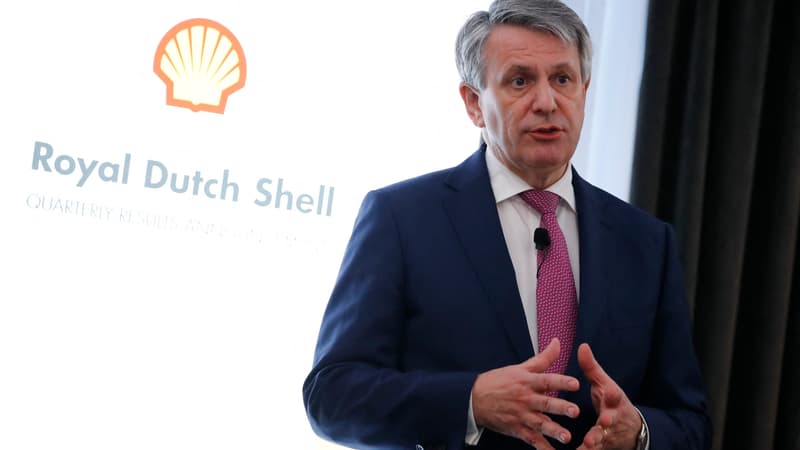Shell CEO Ben van Beurden of the Netherlands will step down at the end of 2022 and be replaced by Canadian Wael Sawan, the British energy giant announced Thursday.
Ben van Beurden, 64, will remain as board adviser until June 2023 and will then leave the group, Shell said in a statement.
Graduated from McGill (Canada) and Harvard (USA), Mr. Sawan was until now in The Hague as Director of Integrated Gas and Renewable Systems. He was previously director of exploration and production activities and was part of the group’s executive committee for three years.
Chairman of the board Andrew Mackenzie praised Ben van Beurden’s “extraordinary 39-year career” at Shell, “culminating in 9 years as an exceptional CEO”.
“Over the last decade (Ben van Beurden) has been at the forefront of the transition to carbon neutrality,” he added.
He stressed that the resigning leader “leaves behind a profitable and solid company with a strong balance sheet, very strong liquidity creation capabilities and promising growth options.”
Ben van Beurden led the pack during the pandemic when hydrocarbon prices collapsed.
They have since recovered spectacularly with the economic recovery following the Covid-19-linked lockdowns, and since the Russian invasion of Ukraine, which is disrupting global supplies.
Reviews
At the end of July, Shell published a net profit of 18,000 million dollars for the second quarter, thanks to the rebound in oil and gas prices, profits that caused controversy in the United Kingdom and in particular in France in the midst of the crisis in the cost of electricity. life. and sky-high energy bills.
Shell shares reacted little on Thursday, rising 0.21% to 2,346.00 pence at the open on the London Stock Exchange.
“It has been a privilege and an honor to serve Shell for nearly four decades,” from his early days as a liquefied natural gas engineer to the top of the company, van Beurden said in the statement.
Shell is regularly criticized for its impact on the environment, and its general meeting in May was notably interrupted by environmental activists.
In May, a Shell consultant resigned in force, accusing the British oil giant of “completely failing in (its) ambition to transition to carbon neutrality”.
An institutional investor, Royal London Asset Management, also criticized Shell’s climate transition plan, saying it did not reduce the group’s oil consumption enough.
The group has also appealed a Dutch court decision that had ordered it to reduce its CO2 emissions in a forceful case brought by a group of NGOs.
In December, the hydrocarbon giant’s shareholders had also voted overwhelmingly in favor of moving, after a century, the group’s headquarters from the Netherlands to the UK and the removal of “Royal Dutch” from the group’s name. , born at the beginning of the 20th century from the merger between the British company Shell and the Dutch company Royal Dutch.
Source: BFM TV


